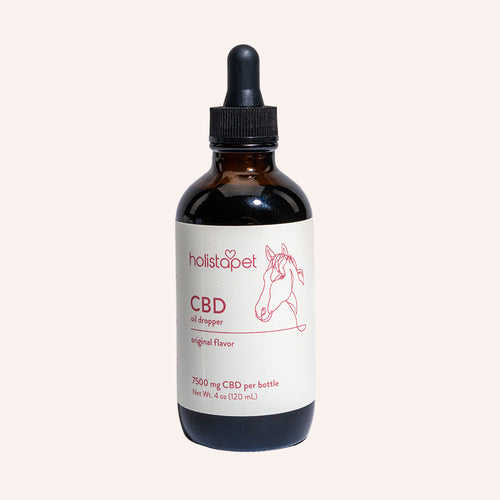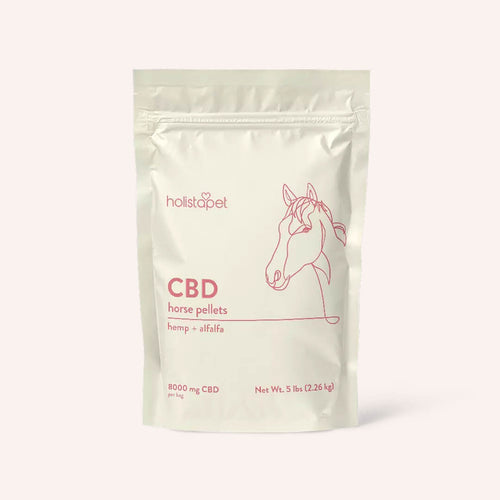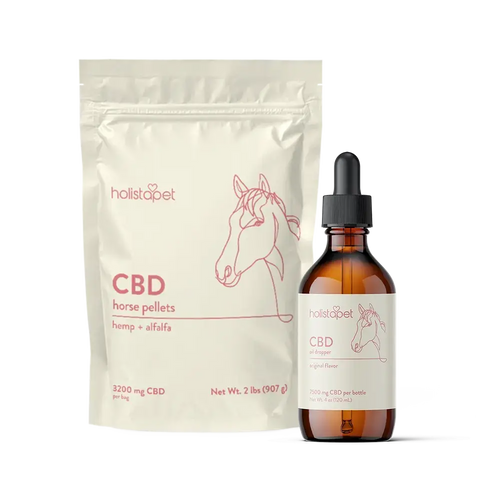Horses, just like humans, can experience a wide range of illnesses. One of these illnesses is known as colic, which appears to affect horses more so than other mammals. Equine colic can be extremely painful and even fatal if left untreated. There are several natural remedies for horse colic, so keep reading to find out which ones work best.
What is Colic in Horses?
Although colic is a general descriptor for abdominal distress, in horses, it is a life-threatening condition that demands instant veterinary intervention. An equine patient experiencing a colic episode will often display various physical distress signals, such as:
- Pawing
- Rolling
- Inability to defecate
- Loss of appetite
- Lack of normal gut sounds
- Sweating and increased heart rate
- Urge for constant urination

Types Of Colic In Horses
Recognizing the early signs of colic is crucial for any horse owner, as timely intervention can significantly impact the outcome. If you observe your horse displaying symptoms of colic, it is likely due to one of these three common types.
- Gas Colic: Gas colic is caused by excessive gas buildup in the horse's digestive system. This can cause symptoms of stress and abdominal pain in your horse. The condition can lead to significant discomfort, resulting in symptoms such as restlessness, pawing at the ground, and noticeable abdominal pain.
- Impaction Colic: This form of colic is marked by gastrointestinal distress caused by physical obstruction of the digestive system. These blockages are often caused by hardened dry clumps of food but can also be caused if your horse consumes a foreign object. However, impaction can also occur if a horse ingests foreign objects that cannot pass through the digestive system smoothly.
- Spasmodic Colic: Spasmodic colic occurs when the stomach and digestive system muscles contract, causing pain and difficulties defecting. Spasmodic colic is frequently triggered by stress, much like common indigestion in humans, and can also be associated with sudden changes in the horse's environment, diet, or routine.
What Causes Colic In Horses?
Horses absorb nutrients from ingested products fairly quickly. Ingestion of toxins or pathogens can enter the bloodstream before getting broken down, making their bodies highly susceptible to illness. They produce gas as a byproduct of the fermentation of the foods they eat, and excessive gas accumulation leads to abdominal pain. Here are the common reasons for colicing horses:
- Excess gas accumulation in the colon
- Accumulation of indigestible material in the digestive tract
- Ingestion of parasites
- Ingestion of sands
- Dehydration (fluids prevent hardening of ingested materials)

How to Treat Colic in Horses at Home
When dealing with colic in horses, many horse owners seek natural home remedies as a first line of defense, especially for mild colic symptoms. While severe cases require immediate veterinary attention and horse laxatives, certain natural remedies can be effective in managing less severe forms of colic and may help support the horse's digestive system:
- Dandelion: Dandelion is a powerful natural horse colic treatment, offering a rich source of essential vitamins and minerals that can support overall digestive health. This herb is packed with calcium, iron, potassium, and beta carotene, all of which play vital roles in maintaining a healthy digestive system and relieving symptoms of an upset stomach.
- Chamomile: Chamomile is widely recognized for its soothing anti-inflammatory properties, making it an effective natural remedy for horses experiencing colic. The herb's ability to reduce inflammation can help ease the irritation in the horse's digestive tract, which is often a source of discomfort during colic episodes.
- Peppermint: The soothing properties of peppermint help to relax the muscles in the digestive tract, which can alleviate discomfort and improve gut motility. This can be especially beneficial for horses experiencing mild colic symptoms, where digestive upset is the primary concern.
- CBD Oil: CBD oil for horses is a product of the hemp plant. It is well-known for having therapeutic properties and is a very unique compound. Like any other mineral oil for horses, it is non-toxic, has virtually no side effects, and is all-natural, making it an awesome horse colic remedy.

Benefits of CBD Oil
All mammals have an endocannabinoid system (ECS), and CBD oil for horses is the ideal choice for dealing with colic. The ECS helps to regulate inflammation, digestion, mood, anxiety, stress, and much more. CBD interacts with the ECS to promote overall wellness and homeostasis. If the ECS is functioning at maximum capacity, horse owners can expect to see a healthier, happier pet.
How Much CBD Should I Give My Horse?
Although there are no established standard dosing guidelines for CBD in horses, there are recommended dosages that can be used as a starting point for treatment:
- The recommended amount for a regular strength dosage is 0.25 milligrams of CBD oil per every 1 pound of body weight.
- The recommended amount for a stronger dosage is 0.50 milligrams of CBD oil per every 1 pound of body weight.
Keep in mind that these are only recommendations and can be altered to meet the needs of your horse. Some animals respond better to low doses while others may benefit from higher doses. CBD oil is most effective when used twice daily. Learn more here!

Do All Horses Survive Colic?
Generally, colic is not always a life or death situation, but as the highest cause of mortality for horses, it is always worth preparing for. If left unchecked and untreated, the severity of colic can rapidly ramp up, causing major health concerns that can become fatal. This is why it is important to treat colic as soon as your horse starts showing signs. 10% of colic cases require surgical correction, which comes with its own mortality risk and a period of recovery that can prove difficult for horses and owners to manage.
Final Thoughts - Best Horse Colic Home Remedies
Because colic is so common, horse owners must know some remedies for horse colic. Prevention is an important aspect of horse care that owners must prioritize due to the potentially fatal nature of the disease. With the help of this useful guide, you have the fundamental know-how to identify and potentially treat symptoms of colic.


 CBD Oil for Horses - Fast Acting
CBD Oil for Horses - Fast Acting
 CBD Pellets for Horses - Easy Dose
CBD Pellets for Horses - Easy Dose
 "Ridin' On My Horse" Bundle - Highly Rated
"Ridin' On My Horse" Bundle - Highly Rated




Leave a comment
All comments are moderated before being published.
This site is protected by hCaptcha and the hCaptcha Privacy Policy and Terms of Service apply.